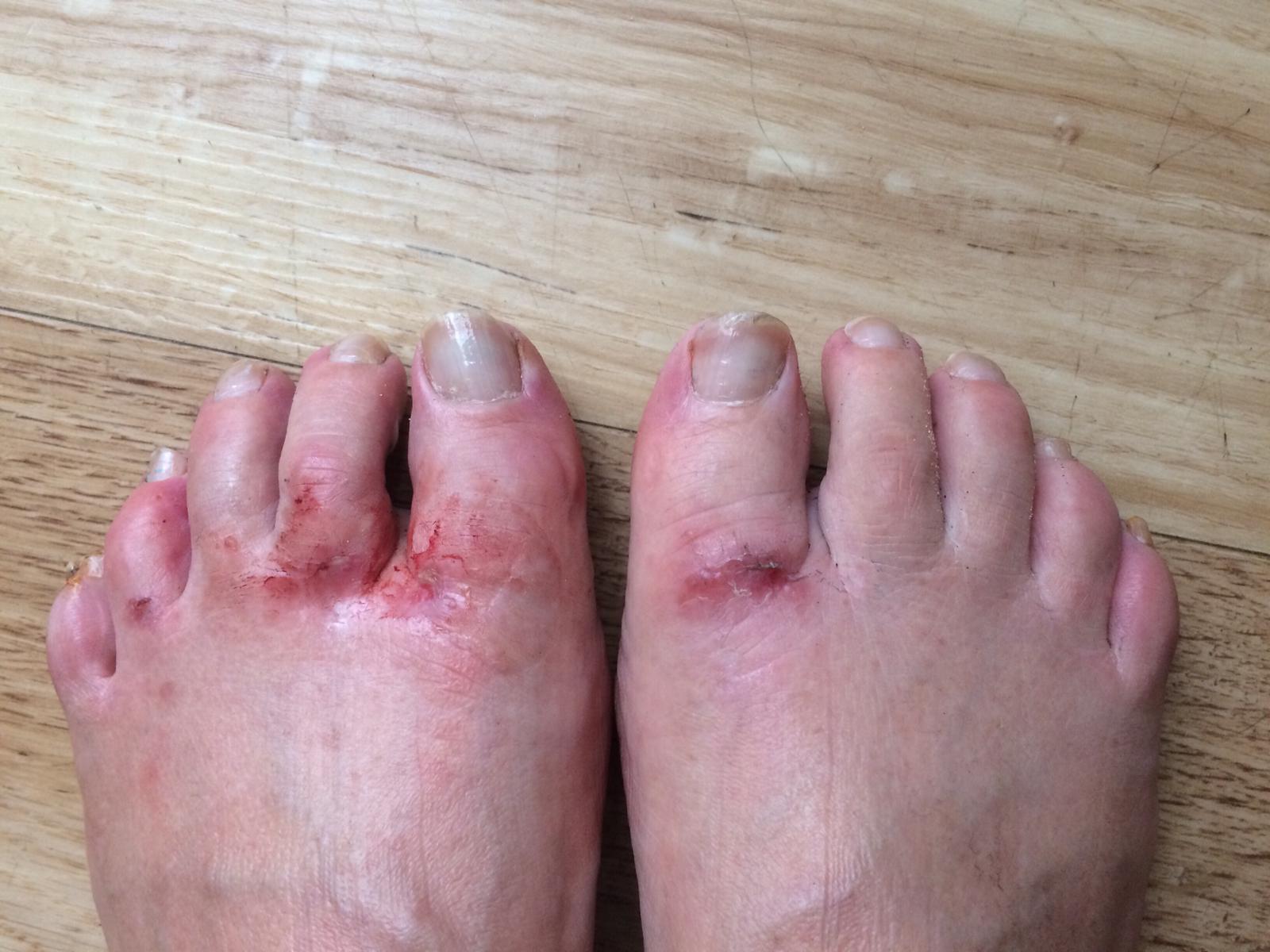Yet another ‘sorry I’ve not been bothered to write a blog for ages’ apology to start. Sorry.
In particular, sorry to the several (yes, several) people who mentioned this in the pub last weekend. And not that there’s been nothing to write about, either. Since the last time we met*, me & the Mrs have been on a few adventures, Norwich City have managed to drag themselves into new lows/highs/lows on a weekly basis, and there’s been fun & games with bicycles, running, dogs and music, often all in one day. So sorry. Again.
With that in mind, I’m going to start jotting down some thoughts on being away from home (incidentally, until recently the only place that NCFC have had any success this season), and, more or less in reverse order. And then it’ll be time to tackle some of the weightier questions of the day, such as how to manage when your dog becomes older than you, what age is appropriate to stop messing around in bands, and why your smoking history may say more about brand affinity than any market research programme.
First then, to Iceland. We’d decided to go to Iceland last summer, when you might remember, it was desperately hot. Unlike myself, Mrs E doesn’t really enjoy any temperature much above 15°C, so was quite keen on planning some time away, to go, I suppose, to a place not in the sun.
Taking this sort of decision was, in retrospect, a bit of a knee jerk reaction. Just like how you shouldn’t go to the supermarket when you’re hungry, get married for the presents or lead a government with no qualification to do so, booking a cold holiday for January when you’re hot in August should really take account of the fact that you’re going to be bloody cold for a good few months before you go. But we were also going because Mrs E believes that being cold, and in particular, being cold while submerged in water is good for her joints (insert your own joke here about making them difficult to light). So it seemed an ideal destination.
Mrs E is also fascinated by countries that can be dark all the time, or light all the time, and that’s a box that was ticked almost immediately on arriving in Reykjavik around 4pm in complete darkness, and by spotting the first tiny bit of sunlight just after 11am the next day. But Iceland seems to manage its way through darkness by making the most of it. We were there mid January and were surprised to find Christmas lights everywhere – we were told later that they stay up typically to the end of February, as they lift the spirits during the more depressing months of the year. Blocks of flats have matching lights across all the balconies, often paid for by the building owners, and we heard of fines being issued if you didn’t do your bit to cheer up your fellow man. Indoors seems to be a bit different – Iceland appears to have taken elements of the Danish hygge movement to its heart, so that any time you walk into a public building, hotel or restaurant you’re plunged into darkness, even during that narrow window of light outdoors. On a couple of occasions we had to search for things we’d dropped in the hotel room by using the torches on our phones , and we used the same technique in restaurants, fearing that if we didn’t get the order right that we might be landed with some of that tasty fermented shark that we’d heard about.

Reykjavik, some time between 11am and 3pm
Maybe these low wattage rooms were something to do with conserving energy, you might think. And you’d be completely wrong. Where the rest of the world wrings its hands and pays lip service to our apparent energy-driven oblivion, Iceland sits back with a pious grin on its face. It may not be that great for fresh food, or a stable tectonic environment, but it does very nicely for clean energy, thank you very much. Electricity comes from geothermic water processing and hydroelectric dams. Hot water goes straight from the geysers and underground sources into the pipes that provide domestic hot water, which is why in older buildings you can still smell the sulphur when you turn on the hot tap. There’s so much electricity being generated that Iceland has three of the world’s largest aluminium smelters, and Icelanders pay around €90 a month for all of their utility bills.
So, they’re pretty well sorted in lots of ways, and now that most people have forgotten the Icelanders’ part in crashing the world economy in 2008, they seem to be making up their economic numbers with a heavy focus on tourism, which provides about 40% of Iceland’s annual exports, 10% of its GDP, and 15% of the workforce. This is mainly focussed in Reykjavik, where curious tourists like ourselves can step out of their darkened rooms onto a dark streets and be picked up and transported across the dark landscape to lagoons and geysers and frozen waterfalls, all of which have a significant wow factor. And if you’re adventurous, and don’t mind being cold and very patient, you can go out and search for the northern lights, probably the greatest tourist money-spinner of all. We were very keen to see the greatest free show on earth, so forked out £60 each to stand on the side of a big boat for a couple of hours in -10°C at 10pm. The lights did make an appearance about an hour after we’d set off, and danced about the sky while about 200 tourists scrambled for their phones to take some very grainy photos. Our captain obviously wanted to get a good look as well, so turned the boat towards the lights, at which point all 200 of us rushed to the stern of the boat, in a scene eerily reminiscent of the last scenes of Titanic.
Not entirely satisfied with our dodgy photos from the boat, we chatted to a couple of Icelandic folk, who advised us that Thursday would be a far better night for chasing the northern lights, but we’d be better off going by minibus across the island and away from the light pollution of Reykjavik. It was going to be a bit more expensive, but the trip did include hot chocolate and, more to the point, ‘if anyone was going to find the northern lights, it would be the driver of that minibus’. So, we were duly despatched from the hotel late on Thursday, hopped into the minibus, and spent several hours experiencing the art of searching for the lights. In practice, this seemed to be about getting off the main road and heading into the heart of Iceland, on narrower and narrower roads, stopping occasionally for the driver to jump out, look up at the sky, tut loudly then jump back in the bus and drive on again. A word about Iceland’s roads at this point. There is a main road that goes around the island, imaginatively called the ring road. This is used a lot, and looks like it is gritted. As a rule, no other roads are. Certainly no footpaths are gritted, although some people clear the snow from outside their houses, and you sometimes see a bit of black ash scattered on the paths to make them a bit less slippery. But once you’re off the ring road, you’re driving on a mix of snow and ice. Or in our case, being driven at pace by a born again fearless Viking who was keen to get his charges to their destination in record time. We wouldn’t have been surprised at all if he’d put up a novelty fairground sign with ‘Scream If You Want To Go Faster’ written on it. So a long journey, but far from boring. We stopped, as above, to check to see if the northern lights were any more visible from a layby than from the windscreen. We stopped for hot chocolate, which was hard to drink with mittens and wrapped up like the invisible man, but delicious nonetheless. We even stopped to help our fellow tourists, as our driver skidded to a halt and cried (in a very non-Viking style) ‘Let’s go and do some good, guys’, and we piled out of the bus to try and push a hire car out of a snowdrift. I realised this was unlikely to work as I found myself waist high in snow as we tried to push the car out. But we were in the middle of nowhere, so at least we were able to give the three Spanish tourists a lift back to Reykjavik. You’d think they’d be grateful, but for some reason they weren’t too happy about being rescued when they heard they’d be out for another three hours – kept muttering about having a flight the next morning and needing to tell someone that their car was in a ditch with no known location. Anyway, they held back, looking fairly unimpressed when, half an hour after the rescue, the driver finally stopped the bus and let us out. The driver was very excited.
‘Trust me” , he said, “I think I see them”.
To be fair, the ‘fairly unimpressed’ feeling was quite contagious. We’d piled out of the bus, expecting bright green fires dancing across the heavens, ended up looking at a grey sky that was only slightly less grey than the ones we’d been looking at for the previous three hours. Echoing the punchline of the Emperor’s New Clothes, an apologetic voice referenced the whole grey/green dilemma.
“Aah, but look at the photograph!” triumphed the driver.
Among his many other talents, out reckless Viking driver was an enthusiastic photographer, and had set up tripod, support lights and very expensive camera, every time we’d stopped, and this time he was fairly skipping with excitement. Sure enough, as we lined up to look at the screen on the back of the camera, we saw quite a bit of green sky. Unfortunately, as the actual (very grey) sky was also quite visible, it took quite a bit of Viking mansplaining to tell us that his camera had a more sophisticated understanding of light than our own eyes. Having said which, who were we to pass up the chance of a free photo?

“I bet they’re right in front of us”, we were both thinking
I mentioned Mrs E’s enthusiasm for managing her well-being by getting extremely cold, and ideally submerged, and Iceland in January was, in many ways, her ideal destination. We spent time in the (not so) Secret Lagoon with quite a few other tourists, swimming around between temperatures from baby-bathing to vegetable-blanching, then getting out in our cossies to hobble across the ice to the changing rooms. We had what Mrs E described as possibly the best day of her life, at the Sky Lagoon, where we descended down tiled steps into 38°C water with so much fog that we couldn’t see beyond a couple of metres – it took us a while to get our bearings, and only after some light swimming, a submerge in the ridiculously cold plunge pool, a huge sea-view sauna, an invigorating salt scrub and a bit of a steam bath did we make our way back to the pool and locate the bar, where we spent part of the kids’ inheritance on a beer and a wine, to be enjoyed overlooking the edge of the pool while the sun set over the ocean. Awesome.

I’d made a bit of a schoolboy error in the Sky Lagoon, by not wearing a hat to go swimming. I’d seem people going into the pool in trunks and bobble hats, and decided that I wasn’t going to go for such a ridiculous look. Instead I kept from getting too cold by simply submerging into the pool whenever I started shivering. Unfortunately, as the air temperature was a bracing -15°C, this resulted in my hair freezing with a thick layer of ice within a few seconds. Never thought there’d be such a thing as bobble-hat envy, but there is.
All of this wasn’t quite enough cold water action for Mrs E, so we elected to walk a couple of miles to a local swimming pool a couple of days later. The weather forecast was quite bleak, with lots of snow, sub zero temperature, and what looked like a lively wind on the forecast. We’re used to lively winds at home, and I thought that the weather app was making a bit much of it – it looked like 22 mph to me, which might normally be described as fairly brisk. About halfway to the pool, after much sliding and swearing, I realised that I’d not read the app properly; I’m pleased to report that 22 metres per second is almost exactly 50mph, which is why we’d spent so much time being blown across the icy roads. The wind was still blowing when we got to the pool, still blowing when we got changed, still blowing as we gingerly stepped onto the ice surrounding the pool, and still blowing as we tried desperately to keep warm by swimming up and down, teeth chattering in the gale. Unsurprisingly we were the only people in the pool, and the only people flying back to the hotel in the wind.
There was lots more to occupy us while we were there – Reykjavik has loads of museums, particularly if you’re interested in dark age history or cod fishing, and there are some fabulous places to eat, although, again, a keen interest in cod fishing is helpful. It’s horribly expensive and ridiculously cold, but for all that, coming home to only have to wear two jumpers indoors and managing to get a pint for a fiver suddenly felt like we were living a new dream.
So, if you have a chance, go. Take lots of money, a torch, and a hat to match your swimming trunks.
*Can’t say ‘Since the last time we met’ without reference to :
Since the last time we met I’ve been through
About seven hundred changes and that’s just a few
And thе changes all tend to be somеthing to do
But you’ve got to believe that they’re all done for you, for you
You will win my undying admiration for placing this lyric without the need of t’internet.





















 As you can see from the picture
As you can see from the picture



